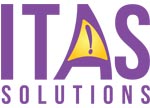In our technologically driven world, data breaches and cyber threats are becoming increasingly commonplace. Small businesses, often considered soft targets due to their limited resources, can face crippling financial and reputational damages if they fall victim. Prioritizing data security isn’t just an IT responsibility — it’s crucial to the very survival of your small business.
Here’s how you can make data security a top priority:
Employee education and training
Stay informed
The human element is frequently the weakest link in data security. Ensure that all staff, regardless of their IT proficiency, are educated about the latest threats and trained on security best practices.
Regular refreshers
Threats evolve; so should your training. Regularly update your team about new threats and conduct mock phishing tests to keep them on their toes.
Robust password policies
Strength matters
Encourage the use of strong, unique passwords for all accounts. A mix of upper and lower-case letters, numbers, and symbols can make a password more difficult to crack.

Use two-factor authentication
Whenever possible, use two-factor authentication (2FA). This adds an extra layer of security, requiring not just a password but also a second factor (like a text message or an app-based code) to access accounts.
Secure physical access
Locked and watched
Sensitive data, whether on paper or hardware, should be securely locked away. Install surveillance cameras to monitor critical areas.
Limit access
Not every employee needs access to all data. Use role-based permissions to ensure that team members can only access the data necessary for their tasks.
Update regularly
Software patches
Hackers often exploit vulnerabilities in outdated software. Ensure that all systems, applications, and plugins are regularly updated to their latest versions.
Regular backups
Regularly backup all critical data. If your system is compromised, having a backup ensures you can restore your business operations quickly.
Secure your network
Firewalls
A good firewall can stop many threats before they even reach your internal network.
VPN for remote access
If your employees access your network remotely, ensure they use a virtual private network (VPN). This encrypts their connection, making it more difficult for hackers to intercept.
Partner with experts
Security consultants
If you can afford it, consider hiring a security consultant or firm. They can assess your current systems, recommend improvements, and help you implement security measures.
Stay updated with threat intelligence
Subscribe to cyber threat intelligence feeds or services to be aware of the latest threats targeting businesses like yours.
Plan for the worst
Incident response plan
Even with the best precautions, breaches can happen. Prepare an incident response plan detailing steps to take in case of a security incident. This helps limit damage and recover faster.
Regular drills
Conduct drills to ensure everyone knows their role in the event of a breach.
While the digital age has brought about many benefits for small businesses, it also comes with increased risks. By integrating the best practices mentioned above, you can not only protect your business’s data but also build trust with your customers and stakeholders. Remember, in today’s world, data security isn’t an afterthought — it’s a business imperative.
Looking for managed IT services in Houston? Turn to ITAS Solutions
At ITAS Solutions, we’re proud to offer tailored technology solutions and outstanding services that are adaptable, cost-effective, and can be personalized to fit your needs.
Get in touch with us now for more information on our IT solutions in Houston!



